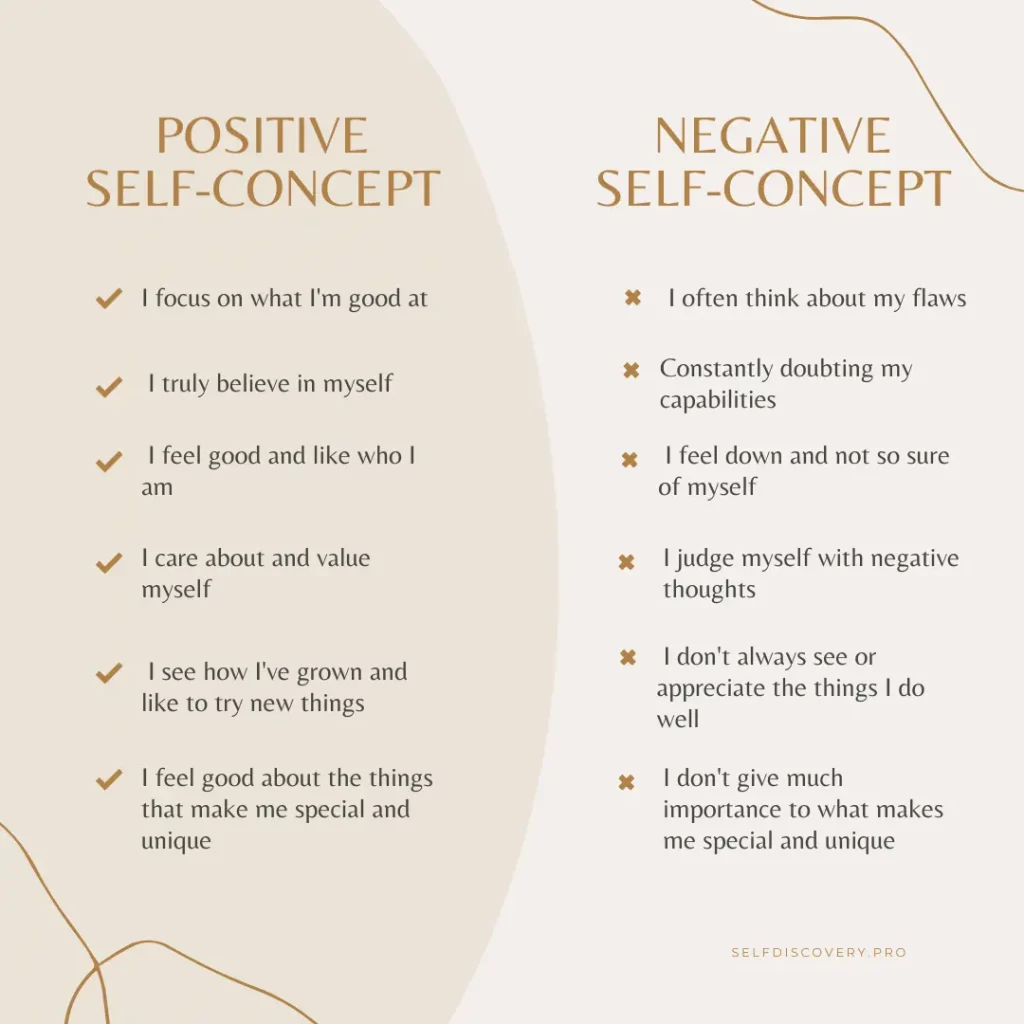What is Positive and Negitive self concept?
A positive view of oneself, characterized by self-confidence, high self-esteem, and a focus on strengths. I already disscus in details about positive self concept that focus on how to keep those positive vibes rolling.
A negative view of oneself, characterized by self-doubt, low self-esteem, and a focus on weaknesses. if you want to transform your negativity into positivity in just simple steps, so this articule is for you! “Negative Self-concept”
Differences

Positive self-concept:
- Embracing strengths: People with a positive self-concept are more likely to recognize and embrace their strengths. This can lead to greater self-confidence and a greater sense of self-worth.
- Believing in abilities: People with a positive self-concept are more likely to believe in their abilities and feel capable of achieving their goals. This can lead to greater motivation, persistence, and success.
- Feeling confident: People with a positive self-concept tend to feel more confident in their abilities and are more likely to take on new challenges. This can lead to personal growth, learning, and development.
- Self-love and appreciation: People with a positive self-concept are more likely to practice self-love and appreciation, which can lead to greater happiness, well-being, and resilience.
- Recognizing personal growth: People with a positive self-concept are more likely to recognize and celebrate their personal growth and development. This can lead to a greater sense of accomplishment and self-worth.
- Celebrating uniqueness: People with a positive self-concept are more likely to celebrate their uniqueness and embrace their individuality. This can lead to greater self-acceptance and self-esteem.
Negative self-concept:
- Focusing on flaws: People with a negative self-concept are more likely to focus on their flaws and imperfections, which can lead to feelings of inadequacy and low self-esteem.
- Doubting capabilities: People with a negative self-concept are more likely to doubt their abilities and feel uncertain about their ability to achieve their goals. This can lead to a lack of motivation, procrastination, and avoidance of challenges.
- Feeling down or insecure: People with a negative self-concept are more likely to experience negative emotions, such as sadness, anxiety, and insecurity. This can lead to a negative self-image and a lack of self-confidence.
- Self-criticism and negativity: People with a negative self-concept are more likely to engage in self-criticism and negativity, which can lead to feelings of worthlessness and low self-esteem.
- Ignoring achievements: People with a negative self-concept may ignore or minimize their achievements, which can lead to a lack of recognition and appreciation for their accomplishments.
- Comparing oneself negatively: People with a negative self-concept are more likely to compare themselves negatively to others, which can lead to feelings of envy, jealousy, and low self-worth.
Here Some Best Books For Positive and Negitive Self Concept
These Books also helps for deep understanding about these concepts:




amazing